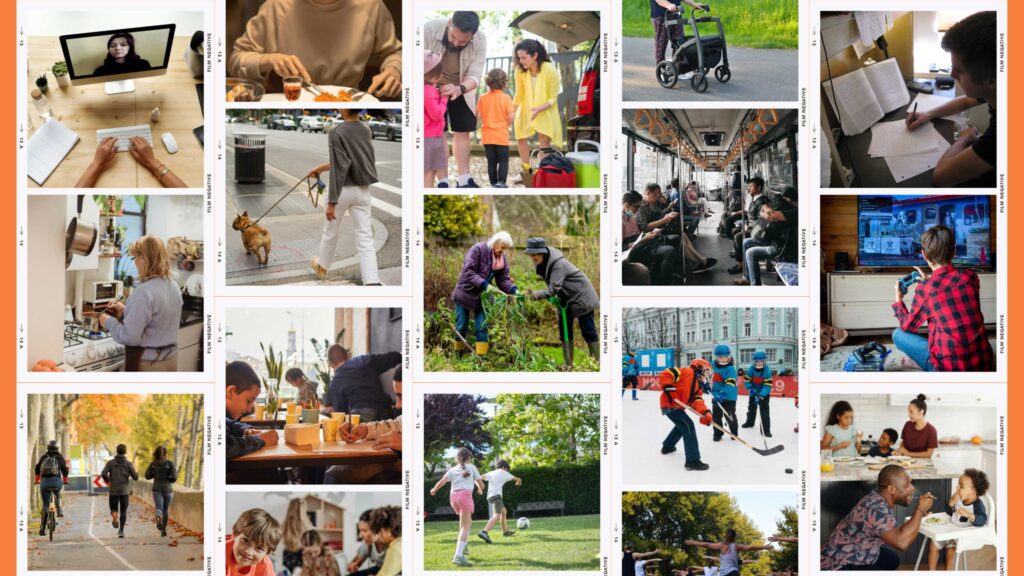Whether we are at home in the kitchen, on the way to school, or at work, we are constantly surrounded by products and ideas rooted in research. While some are obvious, many are so ingrained in everyday life that we rarely think about the research behind them. This is something the ForskarFredag science festival, part of European Researchers’ Night, wants to change this year!

From 23-28 September, ForskarFredag will host a week of events that create opportunities for dialogue between researchers and the public, allowing thousands of people to discover how research works and how fun, exciting, and relevant it can be. Free events will be held in 24 locations across the whole of Sweden, featuring activities such as “science after work” in Stenungsund, Östersund, Sundsvall, and Borlänge, a forest party in Umeå, and a fictional scientific expedition in Lund. Several activities will also be available online, including a space research quiz and a webinar on source criticism.
This year’s theme, “Research in our everyday lives,” is reflected in many of the activities. For instance, at Dalenium in Falköping, researcher Jerker Fick will talk about the environmental impact of chemicals. Jerker has studied the presence of pharmaceuticals in spiders and how certain drugs can make fish bolder and greedier.
In Skövde, the photo exhibition “Get closer to research” aims to spark curiosity about research by showcasing moments that creatively capture humanity’s efforts to make the world a better place.
At House of Science (Vetenskapens Hus) in Stockholm, the focus will be on a feeling many of us experience at some point in our lives: anxiety. What is anxiety, how does it arise, and why can it sometimes feel overwhelming? These are questions that participating classes can explore in a session on “What’s the point of anxiety?” with Erik Andersson, a psychologist and researcher at the Karolinska Institute.
All the events can be found in the festival programme, which this year features over 100 activities, including several that can be participated in remotely.
Exploring messages in pupils’ everyday lives
Each year, ForskarFredag features a citizen science project in which participants contribute to real research. This year’s project focuses on pupils’ experiences in school. In ‘Voices of the Walls: linguistic and visual messages in schools’ pupils from across Sweden are investigating the use of language in schools by photographing posters, drawings, graffiti, and signs found in their schools and reflecting on the messages they convey.
Which languages are present in the school environment, and in what contexts? These are some of the questions we hope to answer with the help of the pupils
Charlotte Engblom from Uppsala University and Mona Blåsjö from Stockholm University will analyse the collected material.
”I am keen to explore the current linguistic landscape within schools. Which messages are considered important enough to be displayed on printed signs, and which are spontaneously created by teachers and pupils? How do images and text interact? Which languages are present in the school environment, and in what contexts? These are some of the questions we hope to answer with the help of the pupils,” explains Charlotte Engblom.
Borrow a Researcher
Over 245 Swedish school classes will also have the exciting opportunity to host a researcher in their classroom. Each class has booked one of the 70+ researchers participating in this autumn’s “Borrow a Researcher”, a Researchers at School initiative. During these visits, which typically last about an hour, the researcher will talk about their research and career path, and answer pupils’ questions.
To make the “Borrow a Researcher” initiative accessible to as many schools as possible, visits are available both in person and online. This year, researchers will be visiting classes in over 30 locations across Sweden, including Boden, Nässjö, and Kristianstad.
By taking part in Borrow a Researcher, I hope to inspire others to pursue knowledge.
Cecilia Engdahl, a researcher at the University of Gothenburg and a member of the Swedish Young Academy, will meet with five primary school classes online. She will talk to them about her research on bones, explain how the skeleton functions, and allow pupils to ask any questions they have about the body.
Why are you participating in Borrow a Researcher?
”I’ve always been curious and eager to learn more. By taking part in Borrow a Researcher, I hope to inspire others to pursue knowledge. Plus, it’s incredibly rewarding to talk to children and young people I wouldn’t normally meet and to share my passion for bones and research – bones are truly fascinating!”
What kind of questions do you anticipate?
“I’m prepared for all sorts of questions whether it’s about what’s in urine to why mum says you shouldn’t swim when you’re cold. And that’s exactly what makes it so exciting – having to think on your feet and explain that I don’t actually know everything,” says Cecilia Engdahl.
European Collaboration
ForskarFredag is part of the European collaboration European Researchers’ Night and Researchers at Schools. This year, Researchers’ Night activities are being organised in 25 countries and expected to reach over 2 million people.
New this year is the opportunity to borrow an international researcher on the Friday of European Researchers’ Night. For example, currently, you can book an online meeting with Matthieu Moncan, who is researching the link between breast cancer and cell stress at the University of Galway in Ireland. Swedish researchers and ForskarFredag organisers have also been able to participate in public engagement training workshops run by organisers of the Scottish Explorathon festival as part of a collaboration between Researchers’ Night organisers.
ForskarFredag has been organised nationally by the non-profit association Public & Science Sweden since 2006. The main aim is to challenge stereotypical views of researchers by providing opportunities for people to have conversations with researchers from all fields of science.
